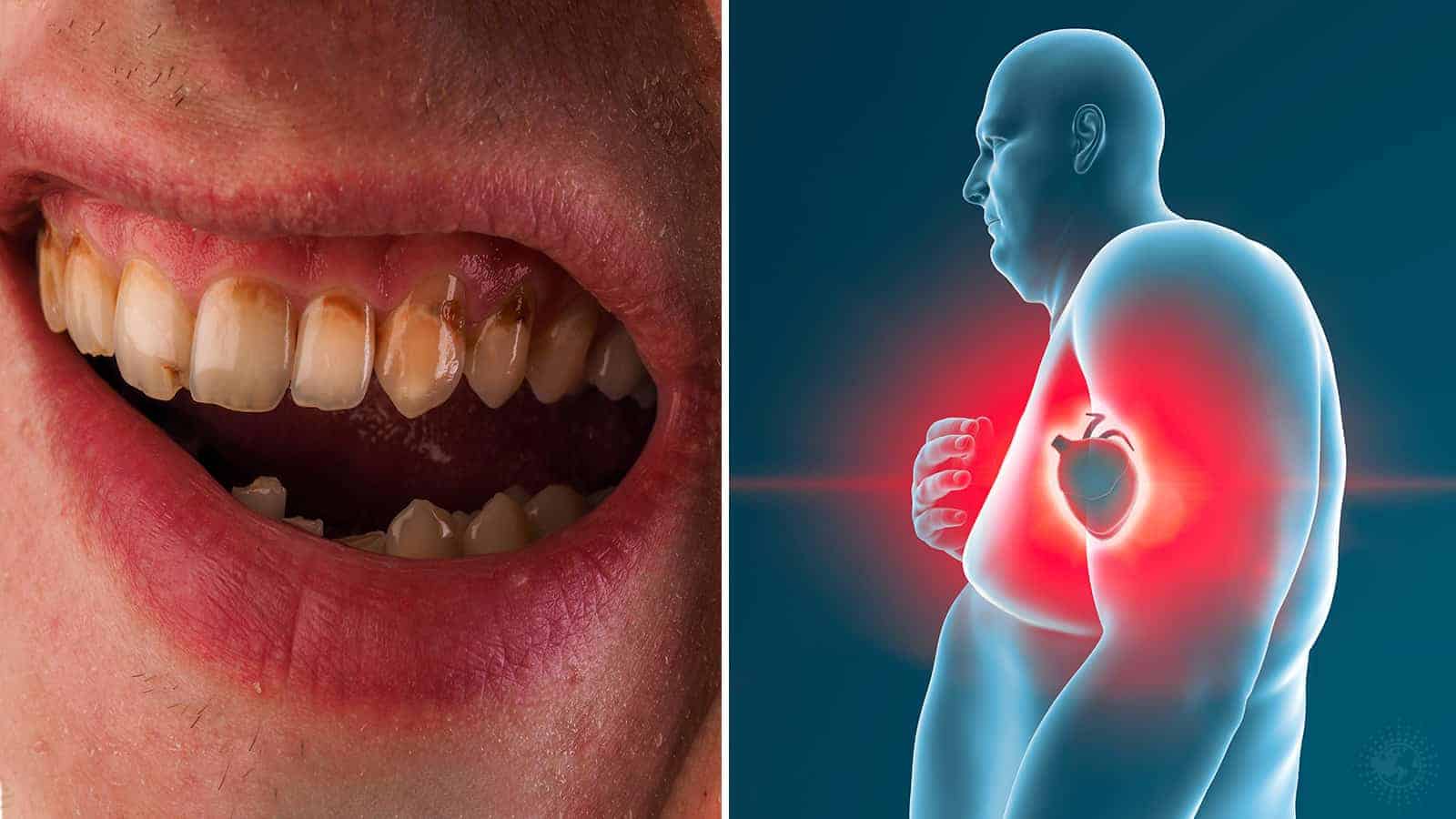What does oral hygiene have to do with your odds of diabetes? As it turns out–quite a lot.
In a recent study, Tokyo researchers have identified poor oral hygiene as a risk factor for metabolic diseases. This group of conditions increases the risk for heart disease, stroke, and diabetes. Researchers from Tokyo Medical and Dental University (TMDU) discovered the bacterium which causes periodontal disease: Porphyromonas gingivalis.
Furthermore, they found that this bacteria causes skeletal muscle metabolic dysfunction, leading to metabolic syndrome. This occurs by altering the composition of the gut microbiome. Scientists have known for some time that periodontal bacteria can cause inflammation in the mouth. However, they have recently found that the bacteria can result in inflammation throughout the whole body.
Chronic inflammation resulting from sustained infection due to periodontal bacteria can cause other problems. Common issues include increased body weight, insulin resistance, and type 2 diabetes. Of course, insulin helps to carry glucose from the blood into tissues throughout the body – most notably, skeletal muscle. Muscles store 25% of the body’s glucose.
Insulin resistance occurs when your muscles, fat, and liver cells can’t process insulin correctly. The pancreas creates more insulin when the cells can’t utilize glucose in your blood for energy. As a result, your blood sugar increases, leading to type 2 diabetes.
The impact of insulin
 Insulin resistance correlates strongly with the development of metabolic syndrome, which includes conditions such as:
Insulin resistance correlates strongly with the development of metabolic syndrome, which includes conditions such as:
- obesity
- high blood pressure
- high blood glucose levels
- chronic inflammation
- inhibited lipid metabolism
- type 2 diabetes
- heart disease
- stroke
Some estimate that insulin resistance could affect as many as one in three Americans.
Some signs of insulin resistance include:
- A waistline over 40 inches in men and 35 inches in women
- Blood pressure readings of 130/80 or higher
- A fasting glucose level over 100 mg/dL
- A fasting triglyceride level over 150 mg/dL
- A HDL cholesterol level under 40 mg/dL in men and 50 mg/dL in women
- Skin tags
- Patches of dark, velvety skin called acanthosis nigricans
Risk Factors and Causes of Insulin Resistance
- Obesity, especially belly fat
- Sedentary lifestyle
- Diet high in carbohydrates
- Gestational diabetes
- Health conditions like nonalcoholic fatty liver disease and polycystic ovary syndrome
- A family history of diabetes
- Smoking
- Being of African, Latino, or Native American ethnicity
- Being older than 45
- Hormonal disorders like Cushing’s syndrome and acromegaly
- Medications like steroids, antipsychotics, and HIV medications
- Sleep problems like sleep apnea
More recently, researchers have added poor oral hygiene to the list of risk factors. It’s been well-established in the scientific community that more muscle people usually have lower blood glucose levels. However, they have just begun to establish the connection between periodontal disease and skeletal muscle’s metabolic function.
“Metabolic syndrome has become a widespread health problem in the developed world,” says the first author of the study Kazuki Watanabe. “The goal of our study was to investigate how periodontal bacterial infection might lead to metabolic alterations in skeletal muscle and thus to the development of metabolic syndrome.”
How researchers found the connection between poor oral hygiene and metabolic disease
Researchers first analyzed antibody levels against Porphyromonas gingivalis in the blood of patients with metabolic syndrome to perform the study. Researchers found a positive correlation between these antibody levels and higher insulin resistance. Thus, the results revealed that patients with metabolic syndrome likely had a past infection with Porphyromonas gingivalis. Therefore, their immune system had antibodies against the invading bacteria.
To understand how poor oral hygiene can cause metabolic disease, the team studied mice. They gave mice on a high-fat diet the bacterium Porphyromonas gingivalis by mouth. (A high-fat diet is a precursor to developing metabolic syndrome). Not surprisingly, the mice developed higher insulin resistance. They also had lower glucose uptake and increased muscle fat than mice in the control group.
However, they still didn’t know how the bacteria led to chronic inflammation and metabolic syndrome. The team turned their attention to the gut microbiome to understand the mechanism. This refers to the total of the bacteria in the gut, where much of the immune system exists. Interestingly, mice given the Porphyromonas gingivalis bacteria had a drastically altered gut microbiome, which may decrease insulin sensitivity.
“These are striking results that provide a mechanism underlying the relationship between infection with the periodontal bacterium Porphyromonas gingivalis and the development of metabolic syndrome and metabolic dysfunction in skeletal muscle,” says the corresponding author of the study Professor Sayaka Katagiri.
Science now proves the importance of maintaining good oral hygiene. Having a healthy mouth and gums will improve your overall wellness and reduce the risk of chronic disease.
 How to maintain a healthy oral microbiome
How to maintain a healthy oral microbiome
Here are a few tips on how to heal your oral microbiome:
- Eat a mostly unprocessed diet. This includes a diet high in fresh fruits and veggies, lean proteins, nuts, grains, and seeds. Severely limit or cut out processed carbs since these lead to cavities and other oral health issues.
- Practice good oral hygiene. This includes flossing, brushing your teeth daily, and using a tongue scraper to remove toxins. You’ll want to go to a dentist for regular cleanings as well. Avoid toothpaste and mouthwashes with harsh ingredients like unnatural dyes, triclosan, propylene glycol, and sodium laurel sulfate. That’s because these cause an imbalance in the mouth’s bacteria.
- Consume probiotics. This will populate the oral microbiome with good bacteria, just as they do for the gut microbiome.
Final thoughts: Scientists report finding a connection between poor oral hygiene and insulin resistance
A new study by Tokyo researchers found that an unhealthy mouth microbiome could lead to metabolic disease. Previously, scientists have focused on other conditions like obesity and type 2 diabetes about metabolic syndrome. However, just as gut dysbiosis can lead to disease, so can having poor oral hygiene. In particular, they found that a bacteria called Porphyromonas gingivalis led to higher insulin resistance.
So insulin resistance plays a key role in developing metabolic disease, an umbrella term for many conditions. To maintain overall health, eat a healthy diet, practice good oral hygiene, and take probiotics regularly.


















